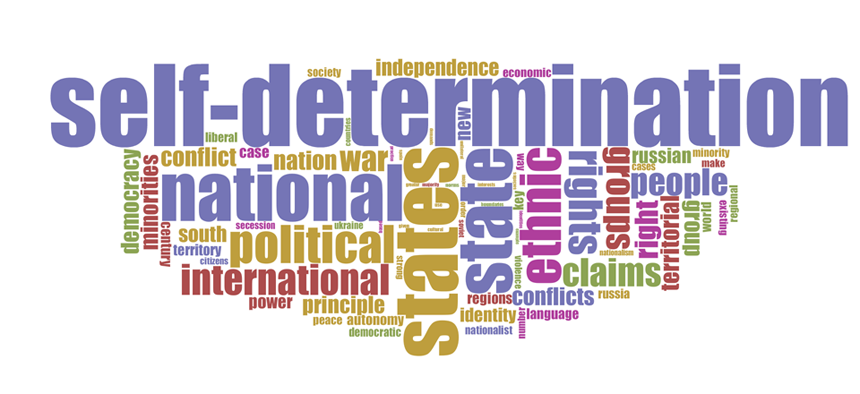Writing to Experts Committee to Draft a new Constitution for Sri Lanka the Tamil National Alliance says that “the failure to offer a meaningful power-sharing arrangement, and the repeated breaches of commitments made in the past in this regard, would amount to the persistent denial of the right to internal self-determination. Under international law, such persistent denial of the right to internal self-determination would entitle a People to external self-determination.”
The letter follows:
24th February 2021
Chairman and Members,
Experts Committee to Draft a new Constitution,
Room No. 32, (Block 02), BMICH, Baudhaloka Mawatha,
Colombo 7.
Dear Sir/Madam,
We thank you for the two-hour meeting on 20th February 2021 at the Saffron Room, BMICH at your invitation.
We had previously responded to your invitation for proposals for a new constitution for Sri Lanka published in gazette extraordinary No. 2198/13 of 20th October 2020.
We outlined the salient features of our proposals at the meeting on 20th February 2021, and made the following observations.
• Sri Lanka is a multi-ethnic and multilingual society.
• The Northern and Eastern provinces have been the areas of historical habitation of Sri Lankan Tamil-speaking peoples, which position was acknowledged by prime ministers SWRD Bandaranaike and Dudley Senanayake in the two agreements signed with SJV Chelvanayakam, leader of the Federal Party.
• This was later confirmed by President JR Jayawardene, and indeed the Sri Lankan state, in the Indo-Lanka Agreement of 29th July 1987.
• The Thirteenth Amendment to the Constitution commenced a process of altering the governance structure of the country by introducing a framework for power-sharing. Although the main Tamil party at the time, the TULF, rejected the Thirteenth Amendment as being inadequate, we cooperated in the efforts to rectify the shortcomings and did not pursue the goal of a separate state thereafter.
• Every leader and government that came into office acknowledged that the power-sharing arrangement must be made meaningful:
◦ President Jayawardene’s assurance given in New Delhi on 7th November 1987;
◦ Mangala Moonesinghe Select Committee proposals in 1993 during President R. Premadasa’s tenure;
◦ President Chandrika Bandaranaike Kumaratunga’s proposals of 1995 and 1997, and the Constitution Bill of August 2000, which had the approval of the cabinet, which comprised President Mahinda Rajapaksa, President Maithripala Sirisena, Prof. G.L. Peiris, Minister Nimal Sirpala de Silva, and others;
◦ The Oslo Communique of December 2002, where ‘…the parties agreed to explore a solution founded on the principle of internal self-determination in areas of historical habitation of the Tamil-speaking peoples, based on a federal structure within a united Sri Lanka’;
◦ President Rajapaksa’s speech in 2006 at the inaugural meeting of the APRC, where he stated: ‘Any solution must be seen as one that stretches to the maximum possible devolution…’;
◦ The reports of APRC and its multi-ethnic experts committee; and
◦ The initiative launched in 2016, wherein parliament was converted into a constitutional assembly through a resolution adopted unanimously on 9th March 2016 (a draft new constitution was presented to parliament on 16th January 2019 by the Steering Committee with its second interim report).
• All of the above show that there has been wide consensus that the national question must be resolved by a meaningful power-sharing arrangement.
• This is also the promise given to India, the co-chairs (i.e. the European Union, Japan, the United States, and Norway), the United Nations, and the world at large.
• The claim for a meaningful power-sharing arrangement is based on the right to self-determination of the Tamil people, which ought to be exercised internally, within a united and undivided Sri Lanka.
• The failure to offer a meaningful power-sharing arrangement, and the repeated breaches of commitments made in the past in this regard, would amount to the persistent denial of the right to internal self-determination. Under international law, such persistent denial of the right to internal self-determination would entitle a People to external self-determination.
• We offered to work with the Committee in identifying the areas that need to be rectified in the Constitution in order to achieve meaningful devolution, which would ensure just sharing of powers of governance.
• The right to equal citizenship, which is owed to persons of all communities, can only be ensured by a just system geared towards the sharing of powers of governance.
• “Non-recurrence” can only be ensured by achieving genuine reconciliation and that can only happen if we arrive at a mutually agreed social contract – the Constitution.
R. Sampanthan, MP
Leader, Tamil National Alliance and
Parliamentary Group Leader of ITAK
Sgd. Mavai S. Senathirajah
Leader, ITAK and co-leader, TNA
Sgd. Selvam Adaikalanathan, MP
Leader, TELO and co-leader, TNA
Sgd. D. Sithadthan, MP
Leader, PLOTE and co-leader, TNA
Cc: President, H.E. Gotabaya Rajapaksa
Prime Minister, Hon. Mahinda Rajapaksa
The Leader of the Opposition, Hon. Sajith Premadasa
The Secretary General to the United Nations, António Guterres
United Nations High Commissioner for Human Rights
The Members States of the UN Human Rights Council
